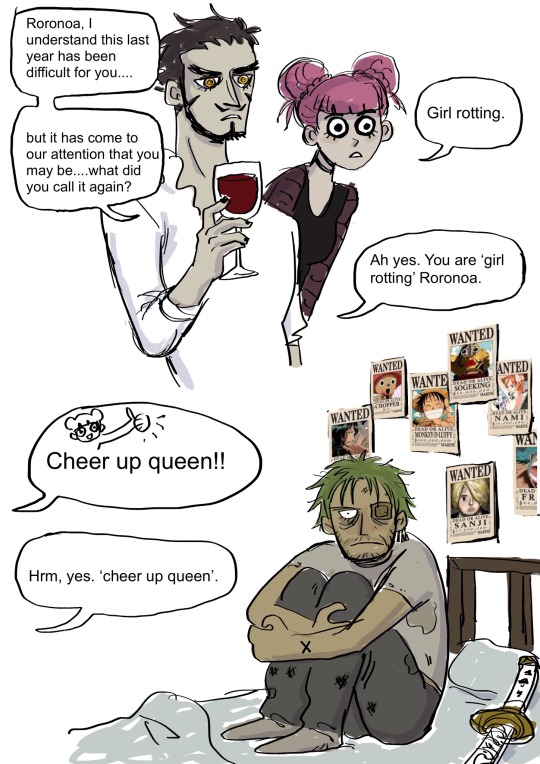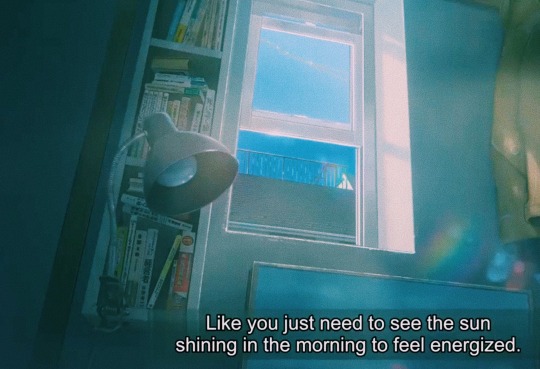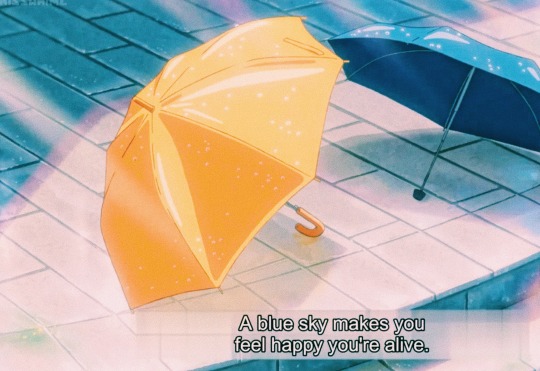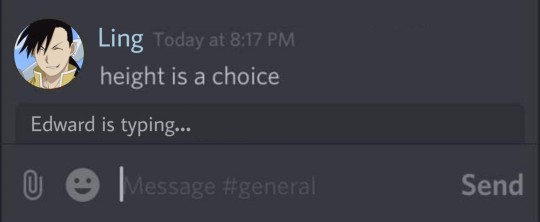Text


Perona and Zoro both being yeeted to Mihawks goth island is my Roman Empire
16K notes
·
View notes
Text


I can see my baby swinging
His parliament is on fire when his hands are up
On the balcony and I'm singing.
Ooh baby, ooh baby, I'm in love.
5K notes
·
View notes
Text






FASHIONISTAS AAAAA
inspired by @/wisdm8 on tiktok and @/wisdm on insta!!!
35K notes
·
View notes
Text
Help, This Article is Behind a Paywall and I'm Not Made of Money
~Check reblogs for additional resources as updated~
A major obstacle to education is the financial and institutional barriers to accessing research. You can find abstracts for articles easily, and learning how to read abstracts is an important skill I will try to cover in a separate post, but it's much, much better if you can access the entire article. I intend to make posts on how to read scientific literature and evaluate studies, but at some point, you have to be able to actually get your hands on articles and practise these skills. I encourage everyone to find the full article whenever they can and read through it. It's very likely that you won't understand everything in it (even if you are a scientist, it is not necessarily in your field of expertise; for instance, I have much greater proficiency in biomedical sciences than in physical sciences. This is not a slight! It is an opportunity to improve your skills, which should be a lifelong goal whether you are a layperson, student, or professional), but give it a go anyway and see what you can glean through context clues. Look up words you don't know (the trick here is learning to discern which words are important to understanding and which are not). The more you work on it, the better you will become, and you will become more and more familiar with the structure of scientific articles and different kinds of studies. Well, that's all fine and good, but how do you do that when Elsevier is telling you it will cost you $40 to read a PDF and BMJ wants £370/year for a subscription? Here are some tips on dealing with that.
First, I guarantee you that academics know the academic publishing industry is a scam, and they don't make any money from the exorbitant subscription prices journals ask. They hate it, too. They do it because they are forced to publish this way. They just want people to see their research. If you can track down the author, you can always email them and politely express your interest in their research and if they can send you a copy of the article you're looking for, and they often will be thrilled to oblige. This is a fairly common practice. I've literally tweeted at academics (but do keep in mind boundaries and professionalism; I only interact on Twitter with people who promote their research on Twitter). Check their institution's website for contact information, if they are current faculty/student. Academics are usually chuffed to talk about their special interests to anyone who asks, and many are more than happy to stick it to the journals that gouge them. Be respectful and professional, and the worst they can say is no (but they will probably say yes).
Your local library is also a great resource. Even if they are small and do not have institutional access to the journal you want or the book you're looking for, they can often get it from other library systems or help you figure out how to get it. This is librarians' bread and butter and they will be very happy to help you. If you are currently enrolled in higher education, your school library likely has institutional access to at least some databases and journals, and many schools publish research guides to help you navigate their database system, if you are looking for research on a topic but don't have a specific article or book in mind. Every single librarian I've ever heard talk about their job is like "I wish people would see us as more than just book babysitters and would ask us for help, we get money based on what resources people are using, please, I'm so bored and underfunded."
WorldCat is a searchable, US-based database of 2 billion books, articles, and media in international library systems. It works just like the search tool at your local library, but for libraries around the world, including academic libraries. I've found bizarre things like a tiny out-of-print book about my family's genealogy that only exists as microfiche in one library in the entire world. If you are lucky enough to be near a library that has the item you want, or if you can request it through something like interlibrary loan, great. You can search for open-access things as well. If you can't, it's still a good jumping-off point for finding the article you want and then trying to access it other ways. Research libraries in the UK and Ireland are linked by Library Hub Discover, Canada has Library and Archives Canada, and Australia has . Internet Archive also maintains an open-access website where you can get free access to a lot of books (this is less research-oriented, though they do have some stuff). For older stuff in the public domain, check out Project Gutenberg (good for historical books).https://www.worldcat.org/
Requesting things from libraries is not always practical, especially if you want to look at a bunch of stuff fast, and not everything is open access/public domain. Here are the main two websites I tell everyone I can about (because getting around paywalls is piracy and that's bad and of course I would never endorse doing such a thing, but just to make sure you avoid these evil websites that would let you do such a heinous thing, here they are)
-- Sci Hub https://sci-hub.se/ (for accessing scientific journals. You can usually get access to articles from scientific journals here, but humanities less so. Occasionally the server goes down, but if you google "Sci Hub" you can often find mirror links)
-- Z Lib https://z-lib.org/ (for downloading e-books and accessing articles. The limit is 5 downloads/day without an account, 10/day with a free account, with options for donating to operational costs to get more downloads. You didn't hear it from me because I'd never endorse taking hard-earned money from the mouths of textbook publishers but they have school textbooks on here, too. I mean, a person could save, like, $400/term, which would be horrible, obviously)
For humanities, JSTOR https://www.jstor.org/ is the biggest, and this one is completely above-board. You have to have an account, which many schools provide with your school log-in credentials or through your school's library webpage. If you are not a student/teacher, or if your institution does not provide access, they raised the limit for the free individual account holders (you could always make a free account, but you would only get access to the open-access articles) from 6 to 100 articles/month. This was implemented in response to COVID and the increase in people working from home and taking on new projects; I don't know if this will be a permanent thing or not, but as of writing (June 2022) it is still in effect.
In my experience, there are a lot more "independent" humanities journals than scientific journals, due to the relative ease of writing an academic paper in history from your couch compared to running complex gels 20 hours/day in a lab with thermocyclers set up for doing polymerase chain reactions. I would not trust a tiny scientific journal very much, but in the humanities, it's often less about quantitative research methods and statistical analysis and more about making arguments based on primary and secondary sources, which are usually quoted/shown in the text, so as long as you have the skills to read critically and assess the strength of arguments, you pretty much…can. A lot of these small journals are published online and free to access, but they can be harder to find. Unfortunately, finding these can be hit or miss, but they do exist. One way to do it is to find an academic who writes about whatever niche topic you're interested in and looking at their list of publications, which may include some weird things (my thesis advisor was published in a journal dedicated to Buffy the Vampire Slayer and Joss Whedon, and he also published papers about X-Men. There is truly something for everyone in academia). Looking at bibliographies of articles is also a good way to find other sources you may not have heard of/may not exist in your database. From there you can just google that publication.
Open-access journals and databases for sciences do exist, though. The most well-known for biomedical sciences is PubMed https://pubmed.ncbi.nlm.nih.gov/ -- not everything on PubMed is open access, but a lot is, and it's a great place to start to actually find the articles you want to see and then use one of the resources above to find the full text.
If you do want to subscribe to a specific journal, make sure to look for student rates and discounts for online-only access. Some journals are better than others for this, and their subscription rates vary widely. The individual online-only access to the British Medical Journal starts at £169/year, which is ridiculous imo. I subscribe to the New England Journal of Medicine in print and online form because I like the Clinical Problem Solving articles and they have good editorials, and the student price is only $69/year (published weekly), less if you don't want the print version. I have been getting it since high school; it is obviously intended for medical students and trainees, but they don't actually care or check what kind of student you are. I don't remember if they asked what school I went to or not, but whenever sites ask that I just pick a medical school lmao. Some places ask for a .edu email address or student ID, but many don't. Both of these journals are highly respected, but NEJM's student rates reflect a desire to target learners, which I appreciate. That being said, not all journals are created equal, so if you do decide to fork over some cash for a subscription, choose wisely, not just what is cheapest. The quality of a journal is not always synonymous with its reach (and even respectable journals can sometimes publish bad things, like Andrew Wakefield's infamously fraudulent paper claiming to link autism to MMR vaccines, published in the Lancet, which is extremely well-respected, which means you still need to be in the habit of consciously analysing what you're reading), but there are some metrics that are used to rank the reputation of journals, including impact factor and number of publications.
The University of Illinois Chicago has a research guide explaining impact factor here: https://researchguides.uic.edu/if
You can read about the different metrics here: https://www.journalindicators.com/
Different methods of ranking have their pros and cons, but this can be a good place to start, and also to get a quick glance at the reputation of the often-obscure journals you may come across in places like PubMed. This website has a searchable database of journals and topics.
SO. I hope this is useful, and I hope the links are formatted in a readable manner, since the Tumblr desktop post editor is...well, it wouldn't be Tumblr if everything worked as it should. Feel free to add additional resources/links/tips.
963 notes
·
View notes
Text
ppl acting like zoom meetings are something new. like the akatsuki did it first
12K notes
·
View notes
Video
if anyone asks what shippudens about send them this
41K notes
·
View notes
Text

six fanarts! thankyou for requesting them!
17K notes
·
View notes



























